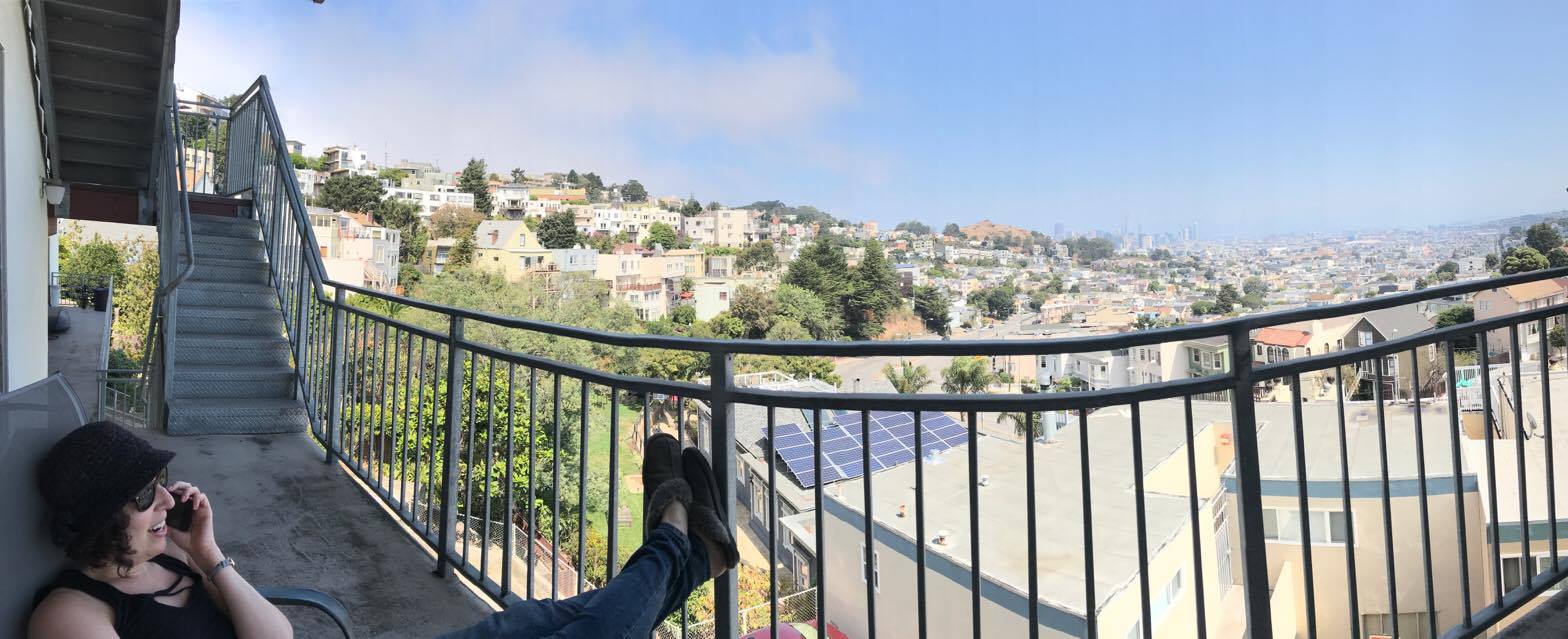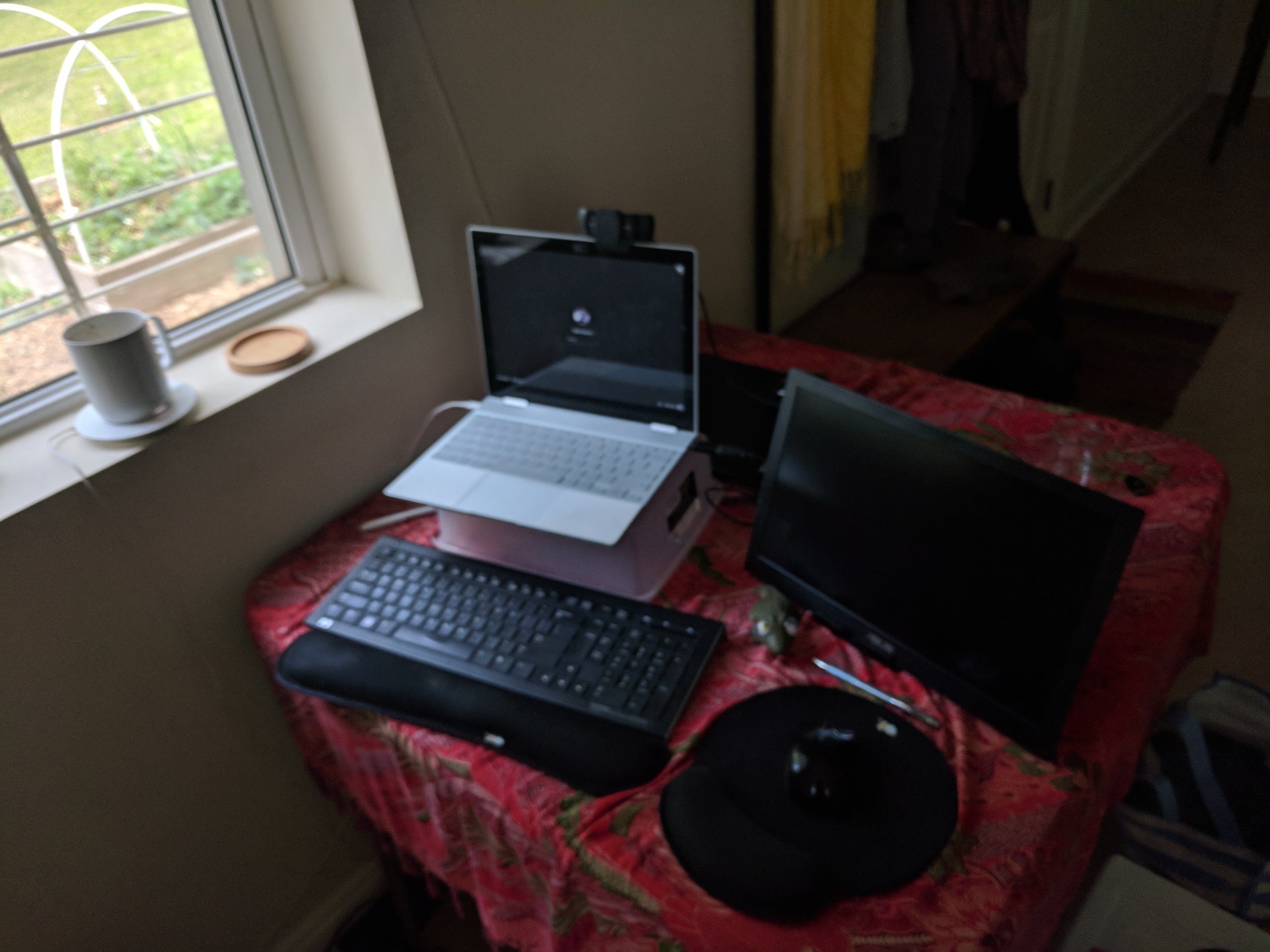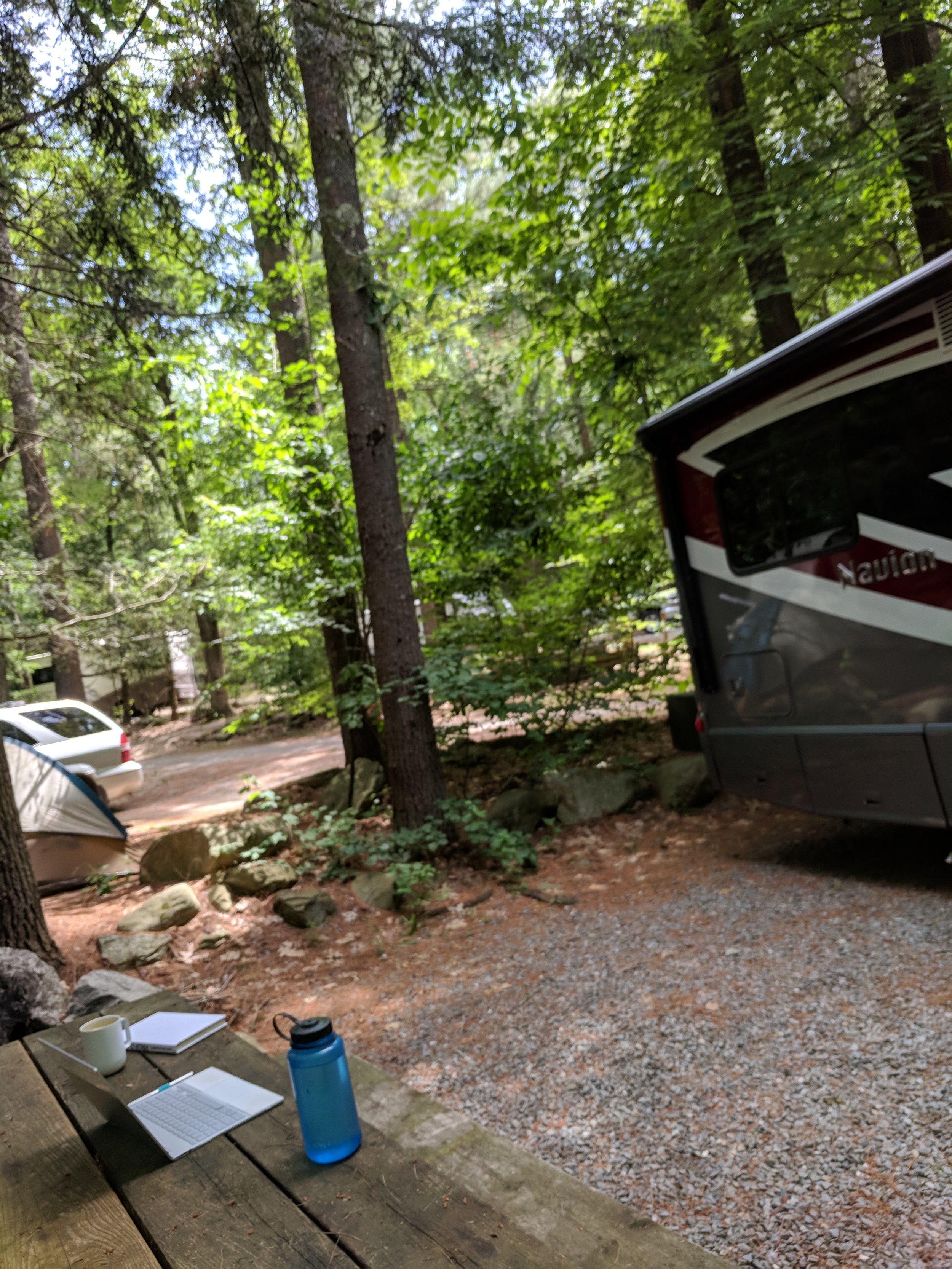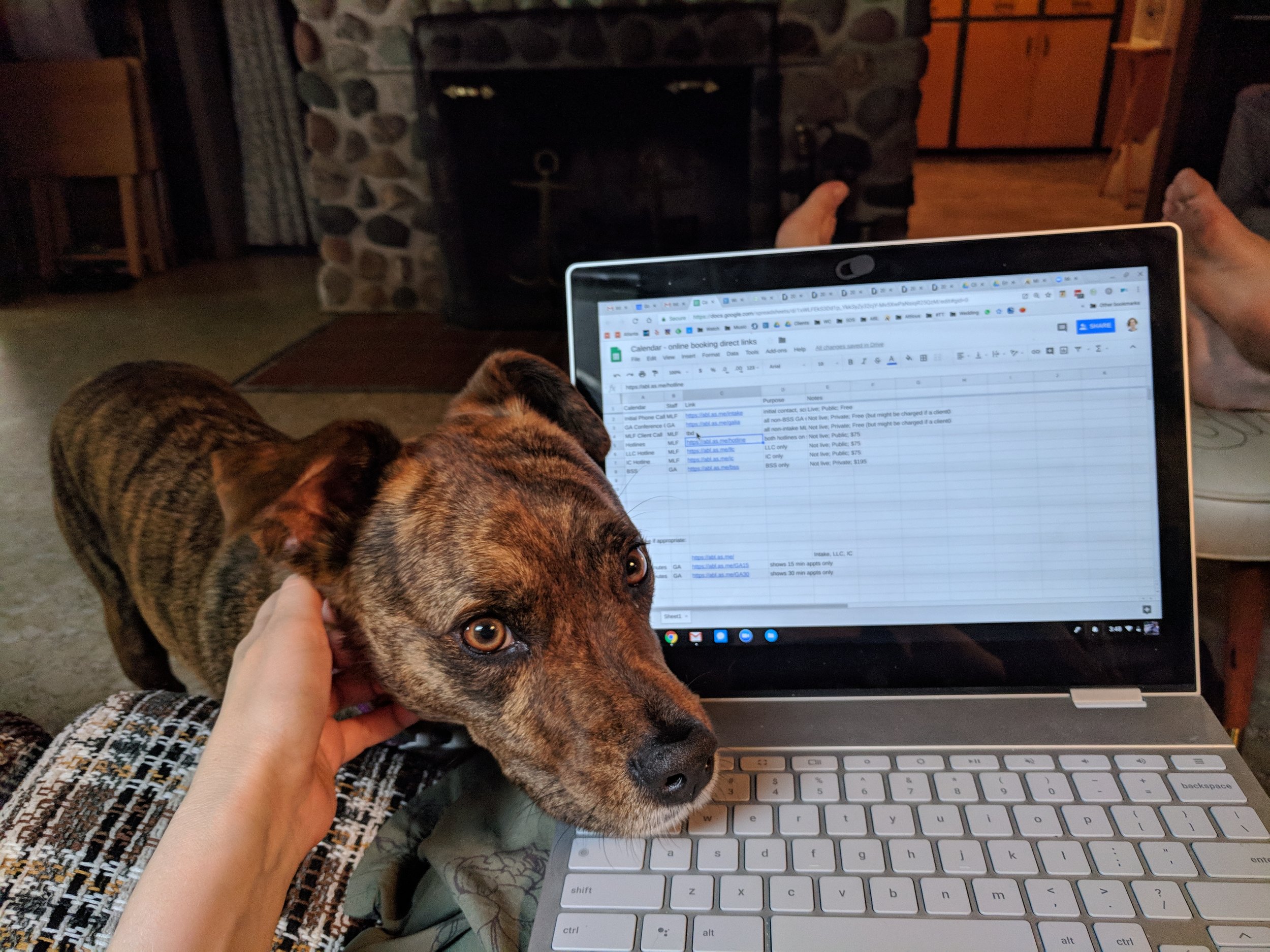Working Remotely Part 3: Marketing
In an industry that historically has been run entirely based on word of mouth and personal referrals, I’ve had a few people ask about marketing a virtual firm.
I feel like I could write five blog posts just about the online marketing we do, but generally I’d split it into:
Social media marketing: Facebook, Twitter, Instagram, Townsquared, Nextdoor
Content marketing: webinars, videos, articles, newsletters
Remote networking
Tenet #1, of course, is no matter what, Always Be Marketing. But with that assumed, let’s dig into each.
. Social Media Marketing
The more people see your name, the more they’ll remember you, and the likelier they are to send you a referral or call your office. Obviously, there’s a line between being visible and being obnoxious, but we’ve made it a point to have a presence on every major social media site, even the ones that wouldn’t be obvious for a law firm like Instagram or Nextdoor.
Linking back to your website from social media sites also boosts your online visibility when people are searching online for a lawyer. You’re more Googlable!
We post self-made content, but also share other links and articles we think would be useful to our followers. Obviously, social media marketing is very intertwined with content marketing: we write an article, then make a short video blurb of it for YouTube or Instagram, then blast it on Facebook, put it in our newsletter, and so on. But each platform has different things that work, so we tailor what we blast depending on the medium.
The goal is not that someone will see our brilliant tweet and hire us (though we of course wouldn’t mind if that happened). The goal is to create top-of-mind awareness (as in, they remember you exist because they just thought of you recently), build trust, and frankly to show the world that we’re one of the few law firms that knows how to use technology.
2. Content Marketing
Content marketing refers to all of the content you’re creating yourself, like articles, videos, newsletters, and webinars. Content marketing boosts your visibility when people search for a lawyer for two reasons: 1) people tend to search for answers to questions, not for specific people, so if I create content that answers their question (e.g. “Should I be an LLC or a Corporation”), they’re likelier to find me; and 2) Google’s search algorithm values useful content (quality over quantity), so the more useful it is, the higher they’ll list you. Content marketing also has the added bonus of showing the world that you’re an expert in your field, and letting people get to know you and get a sense of who you are.
Our law firm also has an explicit mission of focusing on education, as well. We want people to know when they need us and when they don’t, because a lot of business and employment law mistakes are just because people don’t know what they don’t know. Educating people and sharing what we know is one of the things I enjoy most about my job.
3. Referral Marketing
Referral marketing is the practice of receiving (and asking for) referrals directly from your network. Usually referral marketing is done in person, by attending meetings or getting coffee with someone, and building relationships over time. Referral marketing took a backseat to online marketing while I was out of town, but it still played a big part in our growth. I made sure to keep up with my network while I was gone so our relationships wouldn’t atrophy. I also made plenty of new connections, and met new people over the phone or video chat, many of whom I think will turn into great long-term collaborations. (This, incidentally, was a good way to figure out if a potential addition to my network was tech-savvy and modern in a way that my clients would desire and which was compatible with me and my firm.)
I’ll also group Yelp and Google reviews into this category. A surprising amount of our clients find us through Yelp and Google, and that relates back to having an online presence in the first place. People who find us on Yelp will review us on Yelp, and then more people find us on Yelp, and onward.
A key part of referral marketing and receiving reviews, of course, is also just providing a client experience that exceeds expectations. You can’t build up a great online presence and then provide terrible service. The reality is this: if you don’t meet expectations, people will say bad things about you. If you meet expectations, people will say nothing about you. Only if you exceed expectations will people go out of their way to tell other people positive things about you, whether that’s writing a Yelp review or telling their friends. So all of this is useless if you don’t deliver above and beyond. The client experience is something we constantly have on our minds and are constantly trying to find ways to improve even more.
Lessons:
Key fact: all this online marketing is FREE. My favorite kind. Yes, it does take time, but the payoff has made itself incredibly clear. Also, why would I pay someone hundreds, or even thousands of dollars for something I could do myself for free? Maybe I’m just clinging to the frugality of an entrepreneur, but I’d rather spend my money on payroll for an awesome team than on outsourced marketing. But that’s just me. You do you.
The only downside of people finding us online instead of via personal referral is that there may be more upfront cost to weed out clients who need services we don’t provide. If done well, people who are sending personal referrals would weed those people out for you, because they’ll already have a good sense of what you do. But ensuring your network knows exactly what you do and what type of clients you prefer to work with is a long-term and time consuming job itself.
My main lesson in all of this is that I really don’t have to be in the Bay Area 100% of the time for this business to thrive. I think being there in person does make it easier to build one-on-one relationships, but the main benefit of being in the Bay Area is just to have face time with my team members themselves.
I’m not sure how it would’ve gone if I started the business remotely. I do think it still would have worked, but I would have had to put all of the eggs in the Online Marketing basket, instead of trying to diversify between online and referral networking, which I think is more beneficial overall.
Part 4 will go into the actual how-tos of the hardware, software, and resource tools I use while working on the road.

































